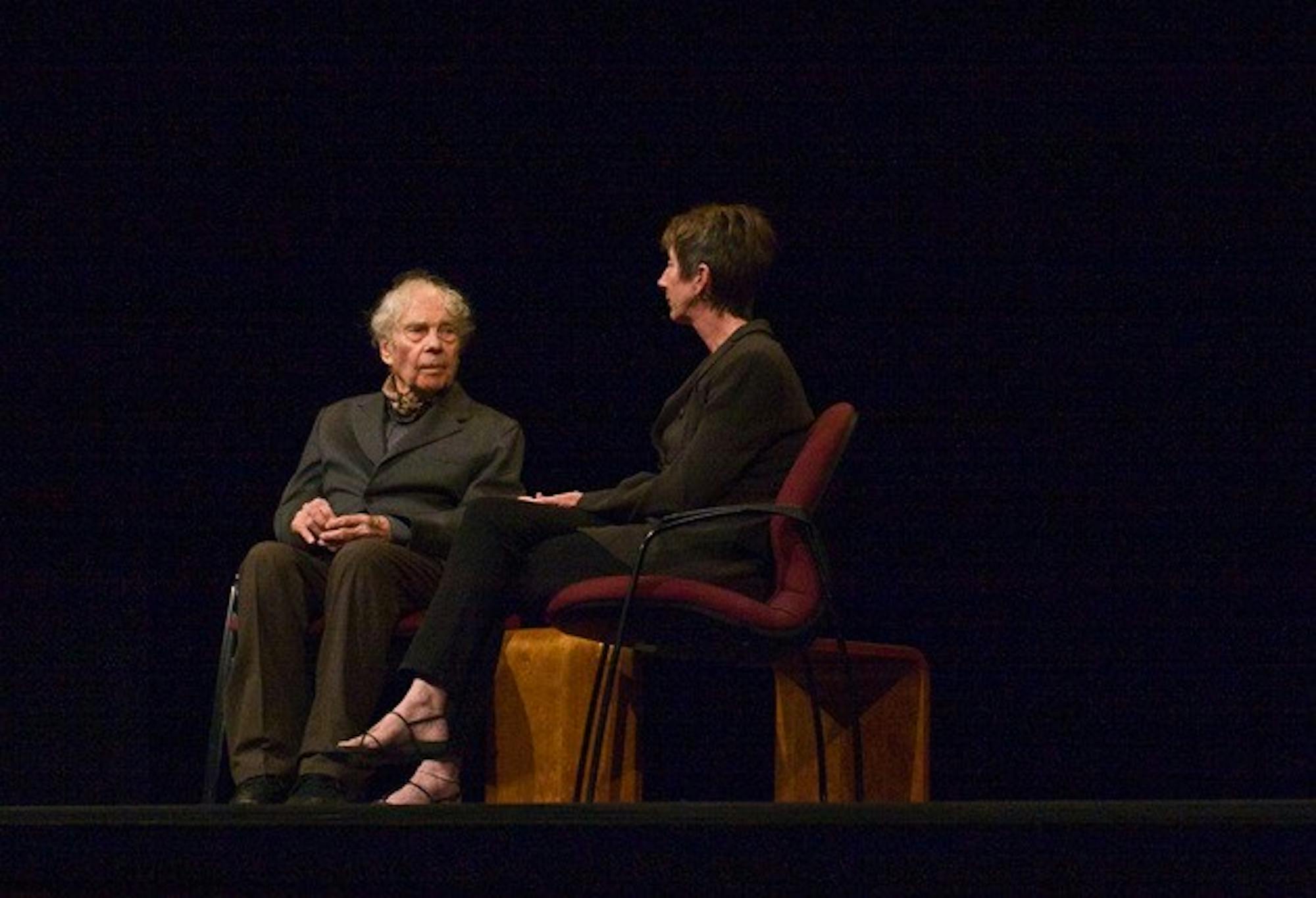Cunningham began his study at the Cornish School in Seattle, where, he said, he was exposed to all areas of the arts: dance, painting, sculpture and theater.
"It was a remarkable education in contemporary art," he said, referring both to his training in dance as well as his early work in the theater.
Cunningham said throughout his training he was driven by a desire to perform.
"It was something I really wanted," Cunningham explained. "I just liked to be on stage."
In recounting the course of his creative development, from his performances under Martha Graham, to his collaboration with composer John Cage, to the start of his own dance company and the birth of his own creative style, Cunningham illustrated how his choreography grew from that lifelong yearning for the stage, and a desire for discovery.
"I was always pleased, if only in secret, when I found out something more about movement," Cunningham said.
He spoke of how, over time, he discovered the complexities and possibilities of choreography, which he noted is open to exploration.
Ultimately, Cunningham said, he came to the realization that dance could be "opened"; instead of working in a fixed direction on stage, a dance could be performed altering its position relative to the audience or even out of a conventional theater entirely. Cunningham is known for this revolutionary approach to space in dance.
Cunningham soon found that music had an equally variable relation to dance, and began to choreograph outside the conventional bounds of rhythm and meter. In doing work with early electronic music in the 1950s, Cunningham said, he developed his well-known approach to creating works of dance separable from the music performed. Instead of choreographing dance which paired exactly with the beat of his music, Cunningham created dances which accompanied, but were not dependent upon, the music.
When asked about how he views dances, Cunningham drew on his past wide-ranging experience in the arts, explaining that dance, for him, shares many elements with the theater. He differentiated himself from his contemporaries, saying that while many of them approached types of dance as the same, he sought to differentiate dances, making them individual.
"Dancers, like people, vary in what they can do," he said, adding that his aim in choreography is to see how dancers move and bring out their true talents. "You can see a way to push, so they can go further."
The event was moderated by Laura Kuhn, executive director of the John Cage Trust. Cage, who died in 1992, was Cunningham's life partner and frequent collaborator.
Susan Wright, the executive director of the Montgomery Endowment -- which brought Cunningham to Dartmouth -- said the discussion provided "a clear image of a dancer who still, at 88, is a performer."
Katharine Conley, associate dean of the faculty for the humanities, similarly praised Cunningham's explorative work.
"He had a way of talking about love of collaboration," said Conley. "What a wonderful sense of the whole person: how he interpolates music, body, theater, and has a love of performance at the base of everything."
Cunningham's company will be performing in two shows at the Hopkins Center this Friday and Saturday. The shows will include performances of two past dances, as well as the premier of his newest work, XOVER.




